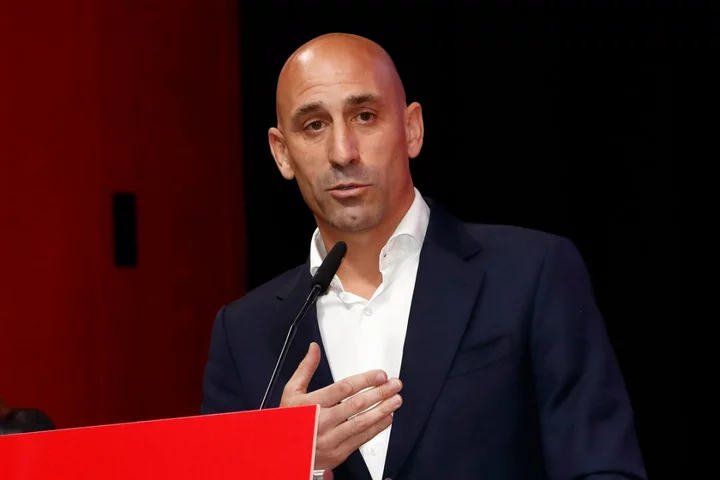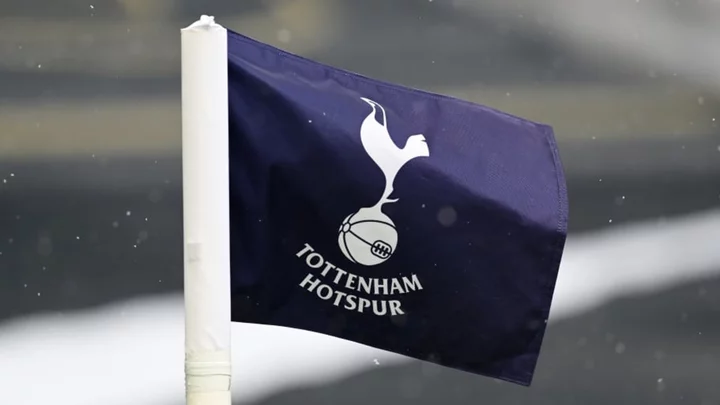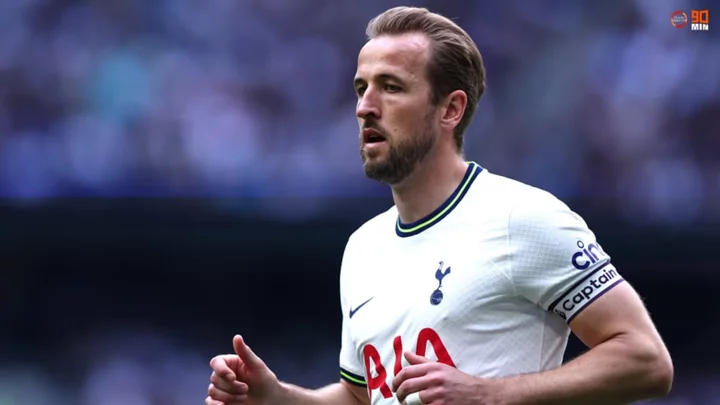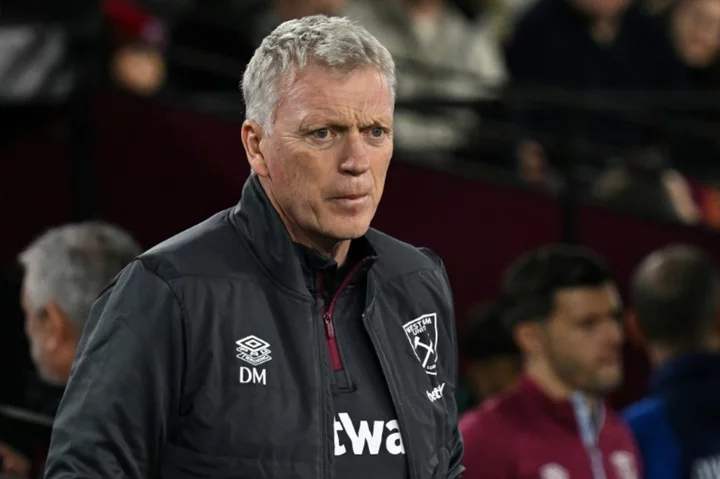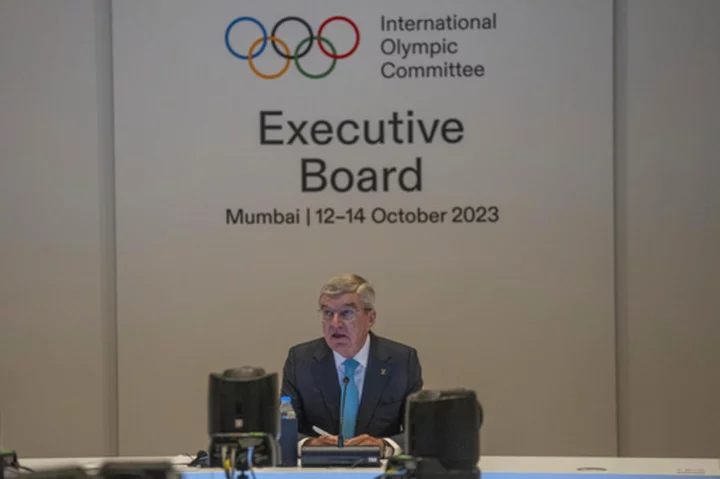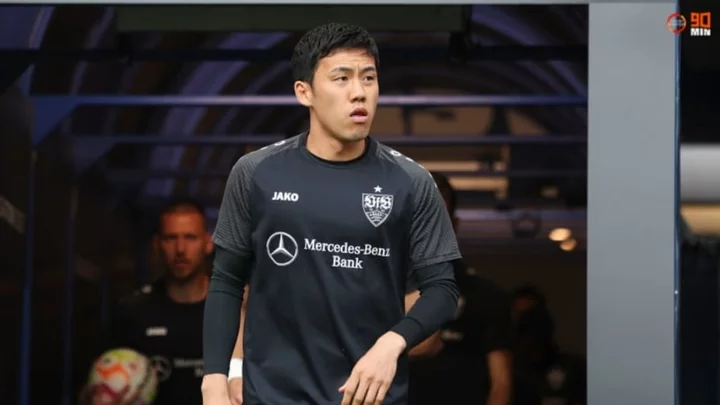Right up until the moment that Luis Rubiales took the microphone at the Spanish federation on Friday afternoon, senior figures in Uefa were adamant he would resign. The expectation had even stopped some prominent football officials publicly speaking out.
What followed, even for a sport like this, left many involved “speechless”. It says more than any statement, mind, that Rubiales’ “jaw-dropping political speech” – to use the words of one shocked source – probably wasn’t the most consequential moment of the day. All of this will eventually lead to real action, way beyond words or Spanish football.
In terms of the most immediate effect, Fifa has now suspended Rubiales for 90 days and ordered him not to contact the player he kissed on the lips after the World Cup final, Jenni Hermoso. One of the most striking and important lines of Fifa’s statement announcing Rubiales’ suspension was the directive that he is not allowed contact her or her “close environment”.
Four official complaints against Rubiales are now being investigated and they could ultimately see him banned from sport for anything between two to 15 years.
“This is the end,” Miquel Iceta, Spain’s minister for culture and sport, told El Pais. “This can’t continue like this.”
And yet it went on a bit longer. Iceta's comments were before the farcical late-night statement outlining how Rubiales’ federation would take legal action against the Futpro Union representing Jenni Hermoso, the player he kissed after the World Cup final, while insisting the president “has not lied” through the use of still images in an attempt to show Hermoso had initiated the incident.
It felt like a point of no return, if only the latest.
That deepens the question over why Rubiales didn’t just resign, although many would point to a total income from the role and connected positions of almost €1m a year. Others would point to a belligerent defiance when “cornered” that sums up his personality. It has similarly led to open comment in Spanish football about how this could be a precursor to a political career. Rubiales’ statements blaming “false feminism” undeniably played into the culture-war sentiment that Spain’s far-right party Vox has long been trying to court.
This is what has finally set Rubiales in open conflict with the Spanish squad, after what has really been months of build-up.
It has also brought the most significant and symbolic effect. The Spanish squad admirably came together as one, creditably supported by many of their colleagues around the women’s game as well as Spanish clubs and some male footballers, to declare they would not play for the national team while “the current management” remains at the federation. It has been quite a move – and almost the grim inverse of one of midfielder Aitana Bonmati’s supreme turns – for the country’s senior football body to turn the glory of a World Cup win into such a global public relations disaster, which is just about the most generous description. The women’s world champions currently don’t have a team. Going up against your now hugely popular winners is quite the position. The front page of Marca declared it all a “global embarrassment”, which echoes the mood of most of Spain.
There are multiple other layers to this, a landmark moment for football as a whole.
One of the main arguments has been what a rightful shame it is that the players’ glory has only seen a man’s behaviour being discussed, and that this man is who represents Spanish football on the global stage. It is in some ways both a separate story, though, and one more deeply fundamental to the squad’s achievements. Some of those achievements, of course, are successfully demanding better standards for women’s football that ultimately served their World Cup win.
This is where there is a wider context to “little more than a kiss”, as Rubiales so provocatively put it.
Even after Spain’s semi-final victory over Sweden, the federation chief was the first figure from the Spanish camp to publicly mention the player mutiny that framed this campaign, talking about “people with resentments” with a similarly provocative tone. It was impossible not to interpret all of this in terms of his own sense of personal vindication for standing by Jorge Vilda and facing down rebellious players, all of which translated into this belligerent triumphalism in the moment of victory. What else does the infamous crotch-grabbing symbolise other than “I’m the man”?
And yet it is that very triumphalism that could lead to his downfall, “the end”, as Iceta put it.
Those very celebrations have now led to a situation where Hermoso has now said: “I want to make clear that not in any moment did the conversation occur that Mr Luis Rubiales references, and much less that his kiss was consensual. In the same way I want to reiterate how I did in that moment that what happened was not enjoyable.
“I felt vulnerable and a victim of aggression, an impulsive act, sexist, out of place and without any type of consent from my part. In short, I wasn’t respected.”
Hermoso then spoke about how she, her family, friends and teammates “have been under constant pressure to come out with some sort of statement that would justify the acts of Mr Luis Rubiales”.
While Victor Francos, the president of the Spanish High Council for Sport, had echoed the mood of many involved by saying nobody should “put the responsibility for this” on Hermoso, there was still a widespread pride in how she spoke. This is the other side of the shame Spain is feeling at how its football culture looks on the world stage.
As regressive as much of the powerbrokers appear, the women’s teams have been pioneers. Spain can be proud of them for much more than winning a World Cup. They are affecting real change. Similarly, a lot of the country has looked at this and decided which side they are on. It is not that of Rubiales or Vilda.
An admirable statement from Osasuna spoke of how the applause in the room “represents how far away Mr Rubiales and those who support him are from the majority sentiment of society”.
On that, if Vilda’s managerial relationship with the players was complex before, what will it be like after effusively clapping Rubiales after his speech?
All of this is why this entire story has had real cut-through, to the extent it has surprised many in Spain.
Francos said: “We’re facing the ‘me too’ moment of Spanish football”.
It also touches on bigger themes in global football.
That is of course if global football snaps out of this apparent paralysis – although the paralysis is part of the point. The silence from some of the most senior people in football has been alarming. Uefa still have no official position on their vice president, although the explanation from those within the organisation is that Rubiales is only there because of a vote from the national federations, that they don’t want to interfere with a member association, and that do they want to cut across Fifa when the global body has opened a case.
“The optics are bad if they say nothing,” one source conceded.
It sums up the mood of many football figures, who all echoed a description of Uefa president Aleksander Ceferin as “such a disappointment”.
Nor has there been any public comment from the Football Association, even though chair Debbie Hewitt was right beside Rubiales in her new role as Fifa president as all of this was happening. Another explanation there is the expectation he would resign and that Hewitt is now likely to be a witness in Fifa’s investigation.
There has then been the widespread silence from the men’s game, other than admirable exceptions like Borja Iglesias, Isco, Hector Bellerin and Javier Aguirre.
The contrast has already been drawn with how activist women’s players are by contrast, with one agent privately confiding that most male footballers only ever take on a cause if it suits their public relations purposes.
“It’s a low bar but how many current men’s players ever talk up?”
This is in part why this story has gone well beyond Spain.
Football faces a crisis of leadership and vision, that has directly facilitated many existential threats to the sport itself, at least as regards the positive community form we know it from most of its history. Rubiales really reflects a type of man – and it is always a man – that rises to senior administrative roles in football, and doesn't seem to have the foresight, let alone other qualities, to properly serve the game as a whole. It is another vintage example of the sport mirroring society in terms of patriarchal structure, of course, but what is so troubling is how its community values could still be so positive.
As the most prominent examples, what has been the response to sportswashing? What has been the response to the corrosive influence of private equity and other forms of a very Western capitalism? What has been the response to multi-club projects and how they distort club identities? What has been the response to the problematic concentration of the vast majority of football’s wealth in the men’s game in western Europe? What has been the response to the destructive erosion of competitive balance?
Bar mostly waving all of this through, the most common response has just been to add more games and competitions, so even more money swirls around the top end.
It has lamentably become a sport that is only ever exploiting its own immense popularity, rather than using it for the good it could do.
And yet that’s the other side of such popularity, and when something spreads among more people like that. Those in charge can lose control of it. The development of the women’s game has led to that more prominent activism previously missing.
This multi-layered story may well end up the most emphatic proof of that. It may end up a victory that goes further than the World Cup itself.
Read MoreSpanish FA threatens legal action over Jenni Hermoso ‘lies’ as World Cup kiss row deepens
Spain’s World Cup winners refuse to play until Luis Rubiales is removed

